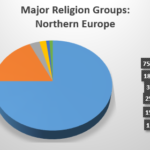Do You Remember Your Family After Death? Exploring Memory, Identity, and Connection Beyond Life

Understanding Memory After Death: What Happens to Our Connections?
The question of whether we remember our family after death is one of the most profound and universal human concerns. People across cultures and eras have wondered if the bonds we form with loved ones endure beyond our final breath. To address this, we must examine scientific perspectives, spiritual teachings, and personal experiences, as well as how to seek comfort and guidance if you’re searching for answers.

Source: sarascrive.com
1. The Science of Memory and Consciousness
From a scientific standpoint , memory is inseparable from the brain. The hippocampus and related regions are responsible for storing and retrieving memories. When the body dies, the brain’s biochemical processes cease, and, according to contemporary neuroscience, memories should also end at this point. Research has shown that, in animal studies, bursts of brain activity occur shortly after death, potentially indicating a final moment of consciousness. However, these findings are inconclusive regarding whether memories-especially of family-persist after death or are retained in any form of personal consciousness [1] .
For those seeking guidance based on scientific evidence, it is important to recognize that, as of now, there is no verifiable method to access or preserve personal or familial memories after death according to established neuroscience. If you’re interested in current research on consciousness and the brain, consider consulting resources published by reputable scientific organizations or visiting academic databases for the latest findings.
2. Near-Death Experiences and Anecdotal Evidence
Near-death experiences (NDEs)
offer another perspective. Individuals who have survived clinical death have sometimes reported vivid memories of life events, including recollections of family members. These accounts, compiled in works like Dr. Raymond Moody’s
Life After Life
, describe people seeing loved ones and reliving significant moments
[1]
. However, mainstream science considers these experiences to be subjective and potentially explained by physiological or psychological responses during extreme trauma. There is no consensus that NDEs confirm that memories or consciousness persist after death.
If you wish to learn more about NDEs, you can search for peer-reviewed studies in medical journals or consult reputable platforms like the National Institutes of Health’s PubMed database using keywords such as “near-death experiences” and “memory after death.” This may help you access the most recent research and case studies on the topic.
3. Spiritual and Religious Perspectives on Remembering Family
Religious traditions provide a diverse range of answers:
Christianity teaches that personal identity and relationships endure in the afterlife. Biblical passages suggest that believers will recognize and remember loved ones in heaven. Moses and Elijah, for example, are recognized at the Transfiguration (Matthew 17:3-4), and Jesus’ story of Lazarus and the rich man indicates that individuals retain their identities and memories after death. Many interpret these accounts as evidence that family bonds continue and are even stronger in heaven [3] .
However, some scriptural references, such as Isaiah 65:17 and Revelation 21:4, suggest that past suffering and painful memories may be “wiped away,” implying that while relationships remain, negative memories may not affect those in the afterlife [4] .
For practical application, if you seek spiritual support, consider reaching out to local religious leaders, faith-based counseling, or online faith communities for discussion, prayer, and comfort. To deepen your understanding, searching for terms like “family in heaven” or “memory after death in [your religion]” may yield insights from your tradition’s perspective.
4. Mediums, Spiritualists, and Personal Accounts
Many spiritual mediums claim that souls remember loved ones and maintain a connection with family. Anecdotal reports suggest that those who have passed often communicate messages of love and reassurance through mediums, regardless of their mental state at the time of death. These messages often emphasize that memories of family and special moments are cherished and enduring [2] .

Source: screenrant.com
If you are interested in pursuing a reading with a spiritual medium, it is advisable to research practitioners carefully. Look for verified reviews, professional affiliations, and a clear ethical code. Be aware that results are subjective and cannot be scientifically guaranteed. If you prefer a more structured approach, consider seeking grief counseling or support groups, which can offer emotional support and coping strategies.
5. Coping With Grief and Seeking Comfort
Regardless of belief, the loss of a loved one can prompt deep longing to maintain a connection. While science cannot confirm that memories of family persist after death, many find solace in the idea that love and relationships transcend the physical world. Support can be found through:
- Grief counseling services (search “grief counseling near me” or contact your local health department)
- Faith-based support groups (contact local religious centers or search for online grief ministries)
- Community mental health organizations (search for reputable providers in your area)
If you are struggling with grief, you can also contact national organizations such as the American Counseling Association or the National Alliance for Grieving Children for resources and referrals. Always ensure you are reaching out to established, reputable organizations and avoid unverified online services.
6. Practical Steps if You Are Seeking Answers
If you want to explore the question further or seek personal reassurance:
- Speak with a religious leader or spiritual advisor about your beliefs and questions
- Read books and materials from respected authors on afterlife, memory, and spiritual connection
- Participate in grief support groups where you can share experiences and hear from others
- Search for academic research using terms like “consciousness after death” or “memory and near-death experience” on platforms such as PubMed or Google Scholar
Remember that no one can offer definitive proof about what happens after death, but seeking information and community can provide comfort and support on your journey.
7. Key Takeaways
The question of remembering family after death is deeply personal and shaped by one’s scientific, spiritual, or religious worldview. While science does not currently support the idea that memories persist beyond physical death, religious and anecdotal perspectives offer hope that love and connection endure in some form. If you are navigating grief or existential questions, seek reputable support and continue exploring according to your needs and values.
References
- [1] HotBot (2024). “When you die, do you remember your family?” Summary of scientific and anecdotal perspectives.
- [2] Matt Fraser (2022). “Do Souls Remember Us in Heaven?” Spiritual medium’s perspective on memory after death.
- [3] GotQuestions.org (2025). “Will we be able to see and know our friends and family in heaven?” Christian biblical analysis.
- [4] Ettinger Writing (2022). “In Heaven, Will You Remember Unsaved Loved Ones?” Scriptural exploration of memory and the afterlife.
- [5] Eternal Perspective Ministries (2021). “Can Our Loved Ones in Heaven See Us?” Christian perspective on afterlife awareness.






